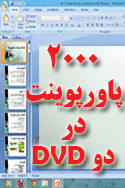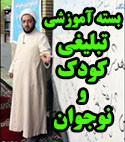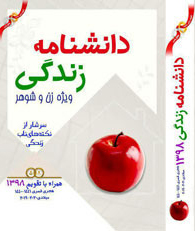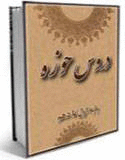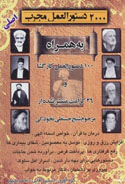Medical ethics and Bio-ethics

Medical ethics and Bio-ethics
By: Morteza Agha Mohammadi
Bio-ethics is a bunch of admirable rituals and customs that physicians should practice and specific codes to avoid. So the nature of bio-ethics is to be moral and to enjoin goodness and prohibit evil in the medical field.
The important point in bio-ethics is the philosophy of ethics. The way that a specific school depicts and defines human and issues related to him are very determining here.
Bioethics is not just a series of principles but implies, in the European tradition at least, a moral obligation to act. (Medical ethics and bioethics in Europe, 2009)
According to one usage, the terms ‘medical ethics’ and ‘bioethics’, are synonymous. Sometimes the term ‘biomedical ethics’ is used in roughly the same sense. According to another usage, they are not synonymous.
Medical ethics is defined roughly as follows:
Interdisciplinary teaching and research discipline which critically, historically and analytically identifies and examines moral and ethical aspects of health care and medical research. ( Hermerén, 2002, p. 26)
It follows from this definition that clinical ethics, dealing with the day-to-day moral decision-making of those caring for patients, typically focusing on individual cases, and seeking to determine what should be done here and now with a particular patient, is part of medical ethics but not identical with it.
‘Bioethics’ can be defined more or less narrowly:
The study of the ethical problems raised by production, uses, and biotechnological modification of micro-organisms, plants and animals in agriculture, pharmaceutical industry or food production. ( Hermerén, 2002, p. 27)
Technological breakthroughs have not been the only factor in the increasing interest in ethical problems in this area. Another factor has been a growing concern about the power exercised by doctors and scientists, which shows itself in issues about “patients’ rights” and the rights of the community as a whole to be involved in decisions that affect them. It was in the climate of such new ethical issues and choices that the field of inquiry now known as “bioethics” was born. The word was not originally used in this sense. … “bioethics” came to refer to the growing interest in the ethical issues arising from health care and the biomedical sciences.
bioethics can also be seen as a modern version of a much older field of thought, namely medical ethics. Undoubtedly, bioethics claims medical ethics as part of its province, but in many ways it takes a distinctly different approach. Traditionally, medical ethics has focused primarily on the doctor–patient relationship and on the virtues possessed by the good doctor. Bioethics, on the other hand, is a more overtly critical and reflective enterprise. Not limited to questioning the ethical dimensions of doctor–patient and doctor–doctor relationships, it goes well beyond the scope of traditional medical ethics in several ways. First, its goal is not the development of, or adherence to, a code or set of precepts, but a better understanding of the issues. Second, it is prepared to ask deep philosophical questions about the nature of ethics, the value of life, what it is to be a person, the significance of being human.
Third, it embraces issues of public policy and the direction and control of science. In all these senses, bioethics is a novel and distinct field of inquiry. Nevertheless, its history must begin with the history of medical ethics. ( Kuhse & Singer, 2009, pp. 4-11)
Nuclear transfer is a crude disruption of a delicate and barely understood biological process. Most cloned animals die during gestation and, because of abnormal placentas or abnormally large fetuses, can kill the surrogate mother…However , even if cloning humans could be done as safely as IVF , opinions on whether it should be allowed are divided. Would we deny an infertile couple a chance to have a cloned child? ( Scott & Weissman, 2004, p. 27) This is what bio-ethics endeavors to respond.
وبگــــــــــردی طلبۀ پاسخگو
- فایل اعمال و رفتار های خلاف قانون جناب آقای حسن روحانی
- در کنج خانه طلبهها چه میگذرد؟
- سکوت چند ساله مسئولان حوزه در قبال حملات وحشیانه به طلاب!
- می گویند که مملکت مملکت آخوندهاست!!
- یک ماجرای تلخ که خانم ها با تأمل بیشتر بخونند
- جریان های تکفیری موجود در عراق و نحوه شکل گیری آنها
- سیر تکاملی تفکر سلفیه چگونه بوده است؟
- بداء در قرآن و حدیث چگونه مطرح شده است؟
- پیامبر (ص) با مخالفین خود چگونه بر خورد می کرد؟
- سبک زندگی حضرت زهرا سلام الله علیها
- ملاک کرامت و شرافت افراد، انسانیت است یا جنسیت؟
- رنگ و پوشش های رنگی در اسلام
- حجاب، زنان را افسرده میکند و مانع پیشرفت اجتماعی آنهاست!!!
- علوم لدنی معصومین
- مگر ولی فقیه معصوم است که ولایت مطلقه دارد؟
- اگر خدا ازعاقبت ما اطلاع دارد قیامت برای چیست؟
- آیا بجای نماز خوندن، پیانو یا سه تار بزنم؟
- چرا مراسم عزاداري امام حسين(ع) پيش از شهادت ايشان صورت ميگيرد؟
- چرا امام حسين(ع) در كربلا براي رفع تشنگي از خداوند طلب باران نكرد؟
دانــــــلود های مفیـــــــــــــــــــد
- دانلود پاورپوینت شناخت وهابیت و صهیونیسم و ارتباط با همدیگر
- دانلود دو پاورپوینت اجرای عید غدیر خم
- دانلود پاورپوینت احتجاج اميرمؤمنان (ع) به غدير
- پژوهشی در کلام و پیام مقام معظم رهبری پیرامون ماه رمضان
- خطبه شعبانیه و خطبه امیرالمومنین(علیه السلام) پیرامون روزه و ماه رمضان
- دانلود پاورپوینت و pdf تفاوت های زن و مرد
- دانلود جزوه ساعات سعد و نحس(زمان نوشتن دعا)
- تقویم مذهبی شمیم یار 96 مخصوص کامپیوتر
- دانلود نرم افزار «شیعه شناسی»
- دانلود پاورپوینت ساختار خانواده و مسایل آن
- دانلود کتاب دایره المعارف جنسی
- دانلود نکات جذاب دوران عقد
- دانلود کتاب درمان سرد مزاجی و بی میلی جنسی بانوان
- دانلود کتاب حسادت کودکان
- دانلود کتاب درمان خستگی وناتوانی جنسی
- دانلود پاور پوینت اسیب های ازدواج وخانواده
- دانلود پاورپوینت هشت گام برای تحقق رویا به واقعیت
- دانلود پاورپوینت تقویت اراده
- دانلود پاورپوینت موفقیت وروشهای رسیدن به ان
- دانلود پاورپوینت هنر رفتار با افراد دشوار
- دانلود پاورپوینت جملات جالب وجذاب روحیه بخش بزرگان
- دانلود پاورپوینت راههای مقابله ودرمان استرس
- دانلود پاورپوینت نیازهای اساسی کودکان
منبــــرهای مکــــــــــــــــــتوب
- منبر مکتوب: روز عرفه و فرصت ها
- منبر مکتوب: سبک زندگی امام باقر علیه السلام
- منبر مکتوب: سه نیاز مومن (امام جواد علیه السلام)
- سخنرانی سلسله ای و چند جلسه ای مناسبت ماه رمضان
- دانلود 30 جلسه سخنرانی ماه مبارک با موضوع تنها مسیر
- موضوعات پیشنهادی سخنرانی برای محرم
- فضائل حضرت قمر بنی هاشم علیه السلام
- برکات وجود ابا عبدالله علیه السلام بر عالم
- بررسی بُعد اخلاقی،عبادی و عرفانی عاشورا
- آخرين وصيت امام حسين عليه السلام
- اولین علت رویاروی در کربلا؛ دوری از یاد خدا
- هميشه حزن؟ شادي چرا نه؟ - شب دهم محرم
- چرا نفرين ؟ - شب نهم محرم
- نماز ظهر عاشورا - شب هشتم محرم
- فلسفه عزاداری - شب هفتم محرم
- دفاع از دین - شب ششم محرم
- فلسفه حضور خانواده سيد الشهداء - شب پنجم محرم
- علم امام علیه السلام به شهادت - شب چهارم محرم
- فقدان شرایط امر به معروف و نهی از منکر- شب سوم محرم
مناظرات طلبه پاسخگو
جدیدترین های زبان انگلیسی
- Islam and Its Social System
- Duties of Man Towards the People
- Islam Various Systems
- Attributes of The Real Follower of Imams in Their Teachings
- Who is a Real Shia Muslim?
- RIGHTS OF SCHOLARS
- Islam Attacks Slavery 1
- The Advantages of Religion 2
- The Clearest Reason for Free Will
- Sheikh Zakzaky to be released on bail
- Brief History of Religions
- Is It Necessary For Man To Follow A Religion?
- The Advantages of Religion 1
- Who Is Almighty Allah?
- What are the differences between Shia and Sunni Muslims؟
- The Rights Islam Offers to Women
- How I find that Islam does not Oppress Women?
- URGENT MEDICAL TREATMENT FOR SHEIKH ZAKZAKY
- The motto of this year’s book fair is “Reading Is Ability”.
- Fundamental principles of Islam
بیشترین دانلود ها
- دانلود صوتي تکنیک های نزدیکی زن و شوهر (108219)
- دانلود رایگان کتاب خواص سوره های قرآن (55140)
- دانلود پاورپوینت بسیار مفید مهارت های زندگی (37716)
- دانلود پاورپوینت و pdf تفاوت های زن و مرد (34344)
- دانلود كتاب مسائل جنسي و زناشوئي در احاديث (33983)
- دانلود کتاب دایره المعارف جنسی (32400)
- دانلود پاورپوینت های آموزش پیش از ازدواج (30792)
- دانلود بسیار مفید پاورپوینت آئین همسرداری (30214)
- دانلود 110جلد کتاب بحارالانوار علامه مجلسی ره (29867)
- دانلود پاورپوینت آموزشی بررسی رابطه دختر و پسر (29844)
- دانلود كتاب دختران خوب به آسمان می روند دختران بد به همه جا (28750)
- دانلود کتاب درمان سرد مزاجی و بی میلی جنسی بانوان (28554)
- دانلود کتاب آموزش جنسی آقایان (28530)
- دانلود كتاب فرق و مذاهب كلامي استاد رباني گلپايگاني (28460)
- دانلود نکات جذاب دوران عقد (28087)
- دانلود نرم افزار «شیعه شناسی» (26469)
- دانلود کتاب درمان خستگی وناتوانی جنسی (25643)
- دانلود پاورپوینت تقویت اراده (24097)
جدیدترین مطالب سایت
- پاسخ به شبهات ولایت (4784) بازدید
- پاسخ به شبهات ولایت (4582) بازدید
- اذان در جامعه اسلامی نماد چیست ؟ و چرا فقط سه بار در روز تکرار می شود ؟ (3949) بازدید
- باتوجه به عادل بودن خداوند چرا بعضی از انسانها را ناقص الخلقه آفریده است ؟ (4029) بازدید
- ویژگی خاص قرآن چیست که کسی نمی تواند مانند آن را بیاورد ؟ (4314) بازدید
- با توجه به ترک خود ارضایی عوارض آن هنوز در من هست چگونه آن را برطرف کنم ؟ (5668) بازدید
- آیا بدن اخروی مانند بدن مادی است ؟چهره ی واقعی انسان در قیامت چگونه است ؟ (5115) بازدید
- آیا ادعای ملاقات امام زمان (عج) از جانب برخی افراد صحت دارد ؟ (4615) بازدید
- چرا به اصول و قواعد دین اسلام توجه نمی شود و پذیرش آن از سوی پیروان ادیان دیگر سخت است ؟ (5002) بازدید
- فلسفه وجود لباس روحانیت در عصر حاضر چیست ؟ (3603) بازدید
- آیا وظیفه یک روحانی تنها راهنمایی مردم و فعالیت و تدریس در حوزه هاست ؟ (2993) بازدید
- آیا نظریه تناسخ از دیدگاه اسلام پذیرفته شده است ؟ (5363) بازدید
- آیا توصیف بهشت و جهنم در قرآن تمثیل هایی برای درک بهتر آن جهان است ؟ (4946) بازدید
- با توجه به اینکه اسلام کاملترین دین هست چرا ما نسبت به کشور های غیر مسلمان عقب مانده تر هستیم ؟ (6869) بازدید
- نقش امام و رهبر در جامعه اسلامی چیست ؟ و اگر نباشد چه اتفاقی می افتد ؟ (4632) بازدید
پربازدیدترین های سایت
- زنی هستم که میخواهم به شوهرم خیانت کنم!!! (605542)
- آيا زن شوهر دار بخاطر رفع نیاز جنسی اش ميتواند صیغه شود؟ (501177)
- دوست دخترم حامله شده چکار کنم؟ (398716)
- میل جنسی زیادی دارم و به شدت داره منو عذاب می ده (340745)
- دیدن فیلم های مبتذل زن و شوهر برای تحریک شدن جنسی (217936)
- چگونه همسرمان را آماده آميزش جنسي كنم؟+18 (213236)
- حکم شرعی نزدیکی از پشت! (208248)
- خانم هایی که می خواهند طلبه شوند بخوانند!!! (205751)
- زنم رابطه جنسی برقرار نمیکند!!! (199751)
- از تجربه های تلخ و تکان دهنده دختران بخوانید شاید... (172476)
- گناه با محارم خود داشتم! (146484)
- رابطه جنسی دهانی حكم چيست؟ (131081)
- محرمات و مکروهات و مستحبات حائض+حکم ورد به امکان مقدسه (129590)
- به رابطه خانمم با خواهر زاده اش مشکوکم؟ (123508)
- سفارش اسلام در مورد آمیزش صحیح چیست؟ (99138)
- نام كتاب حضرت نوح و حضرت ابراهیم؟ (97173)
- با زنان چشم سبز ازدواج نکنیم؟ (94960)












